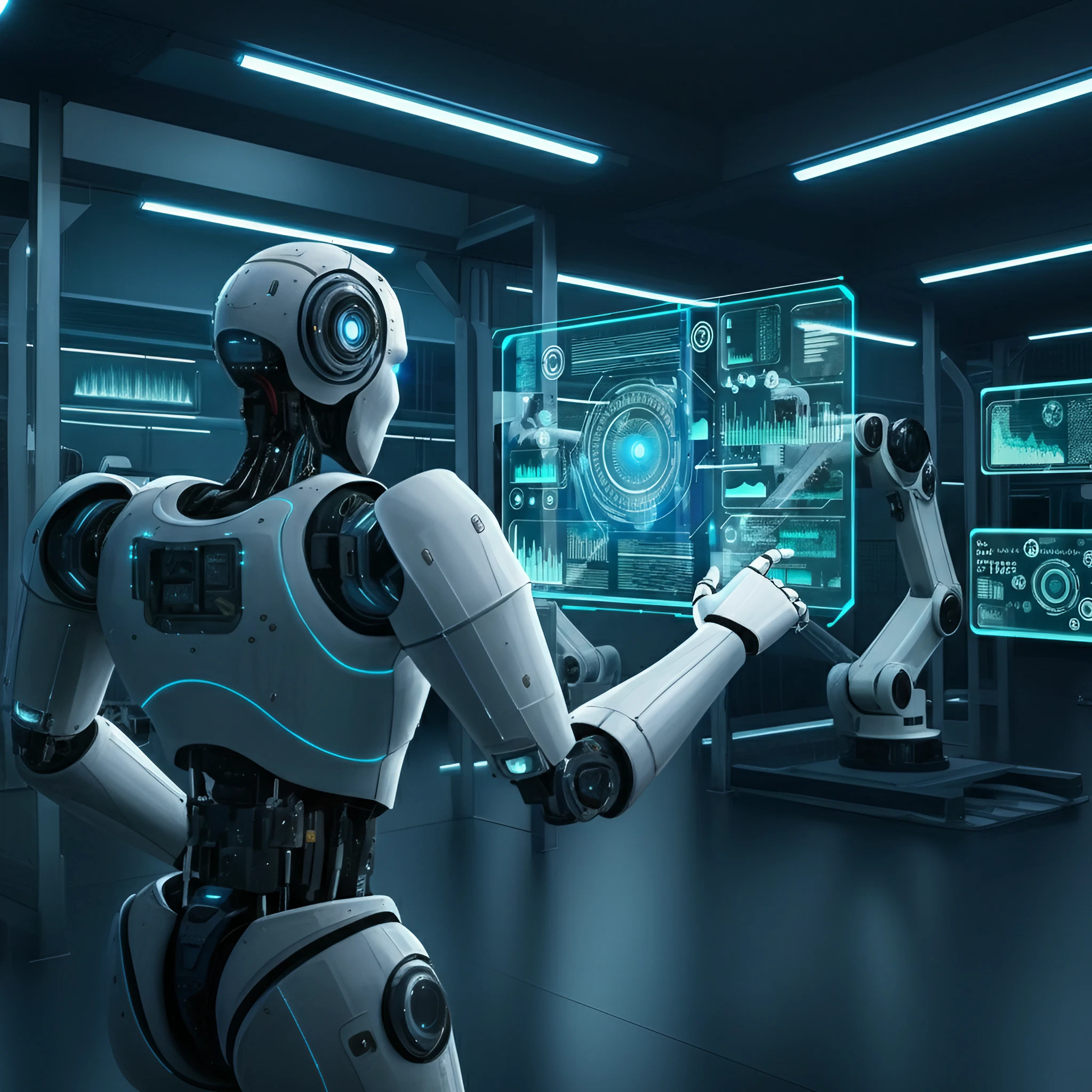Making robots smarter, safer, and more adaptable
Google DeepMind, the renowned AI research arm of Google, has announced a groundbreaking advancement in robotics with its new AI suite, Gemini Robotics. These cutting-edge AI models are designed to empower robots with the capabilities to seamlessly integrate into real-world environments, setting new standards for control, adaptability, and safety.
What is Gemini Robotics?
Gemini Robotics is a state-of-the-art AI framework that enables robots to interact with their surroundings in a human-like way. Equipped with advanced capabilities, Gemini allows robots to:
- Interact with objects in dynamic environments
Robots can pick up and manipulate items, from folding paper to placing a pair of glasses in a case, as demonstrated in DeepMind’s recent demo videos.
- Navigate diverse environments
Whether in a crowded warehouse or a simple household kitchen, Gemini-powered robots can move efficiently and adapt to unfamiliar settings.
- Respond to voice commands
Robots trained on Gemini can carry out tasks instructed via spoken input, removing the need for specialized programming languages or interfaces.
Generalizing Across Platforms
One standout feature of Gemini Robotics is its ability to generalize behavior across different types of robotics hardware. This means the AI doesn’t need extensive retraining for each new robot or environment. Gemini connects what robots “see” (via sensors) with actions they need to execute, allowing for seamless transitions between perception and movement.
Notably, Gemini has been tested in scenarios and environments not included in its training data, and it performed remarkably well. This underpins its potential to aid businesses, researchers, and developers working across various industries in need of flexible robotics solutions.
A New Tool for Researchers
To support the broader robotics community, Google DeepMind has released Gemini Robotics-ER, a streamlined version of the model. Researchers can use this version to train their own AI models, exploring new applications and tailoring solutions to their specific needs. This move aims to foster collaboration and innovation across academia, startups, and enterprises.
Introducing the Asimov Benchmark
Safety remains a major concern in the development of AI-powered robotics. To address this, Google DeepMind has also developed the Asimov benchmark, a new tool designed to measure the risks and capabilities of AI-driven robots. This benchmark will help engineers ensure their autonomous systems perform well under various conditions, reducing errors and making robotics safer for human interaction.
Why These Models Matter
With robots increasingly prevalent in industries such as manufacturing, healthcare, and logistics, there is a growing demand for smarter and more adaptable systems. Gemini Robotics provides enterprises and researchers with tools to unlock efficiencies while maintaining a focus on safety.
The ability of AI-powered robots to perform complex tasks, adapt to new scenarios, and simplify human-robot interaction paves the way for innovation across numerous sectors. Applications could range from smart warehouses powered by autonomous machines to hospitals deploying robots to deliver supplies or assist patients, all without requiring engineers to manually program and adapt robots to each environment.
A Giant Leap for Robotics
Google DeepMind’s innovation reminds us how far robotics has come and how much untapped potential remains. With the release of Gemini Robotics-ER and the Asimov benchmark, researchers and enterprises alike have powerful tools at their disposal to build, adapt, and refine robotic systems.
The future of robotics is one of integration, adaptability, and safety. Google DeepMind’s latest advancements serve as a foundation for progress, signaling a new era in sustainable, intelligent machines.
Want to learn more? Bookmark Google DeepMind’s site for the latest updates on their AI initiatives!








